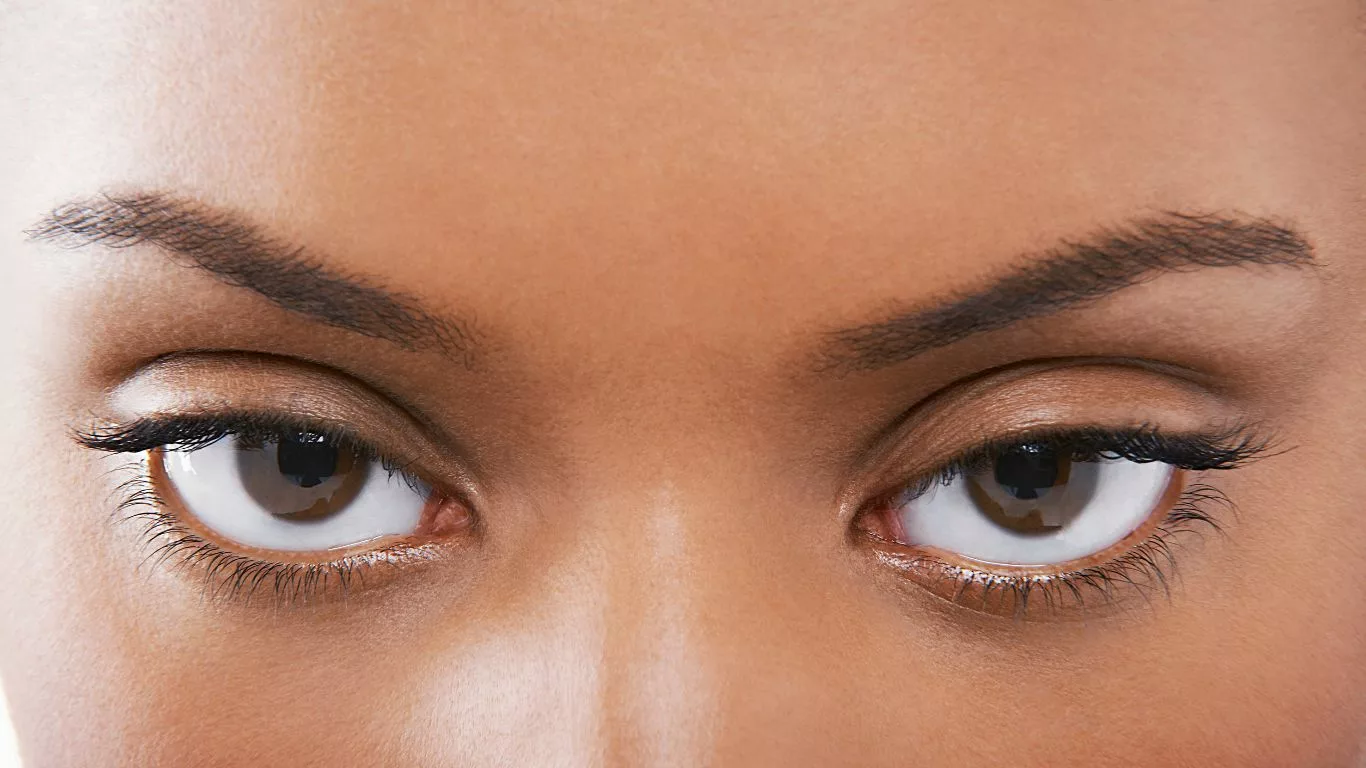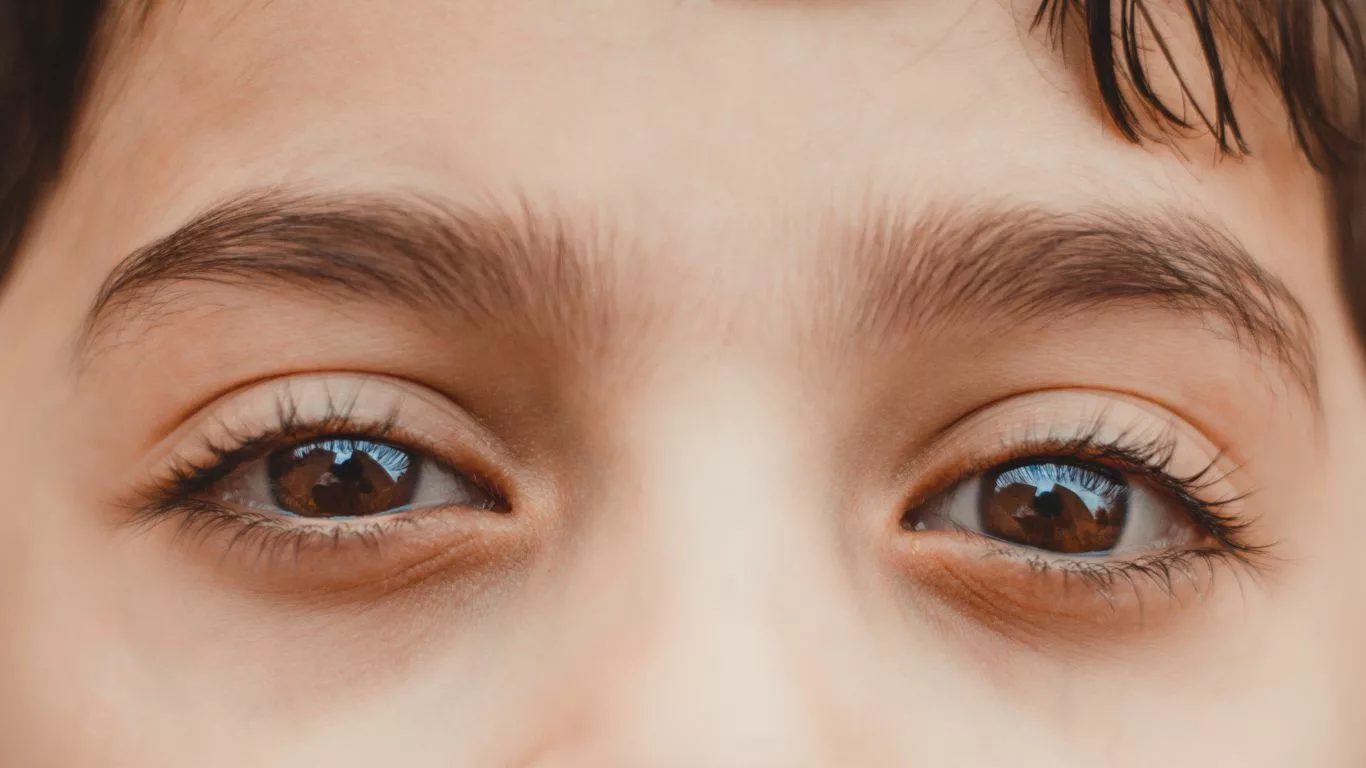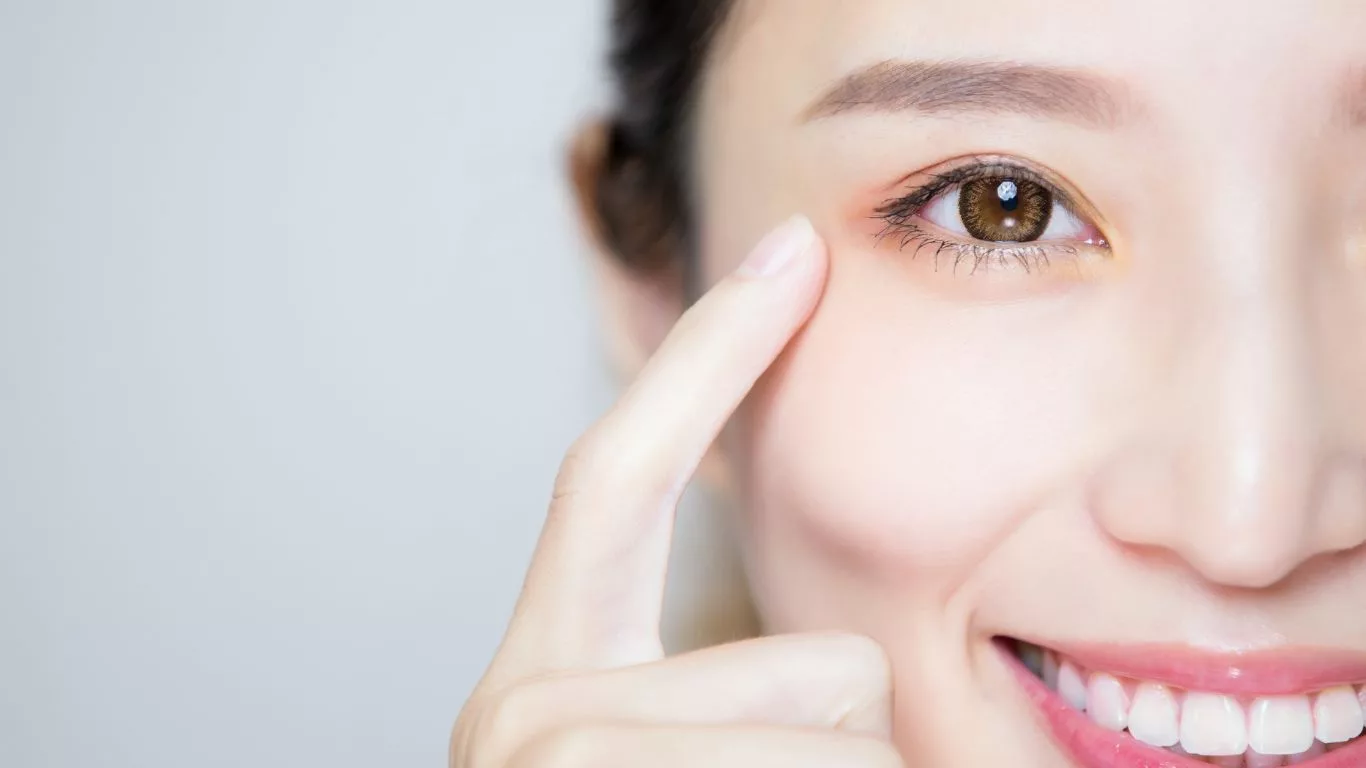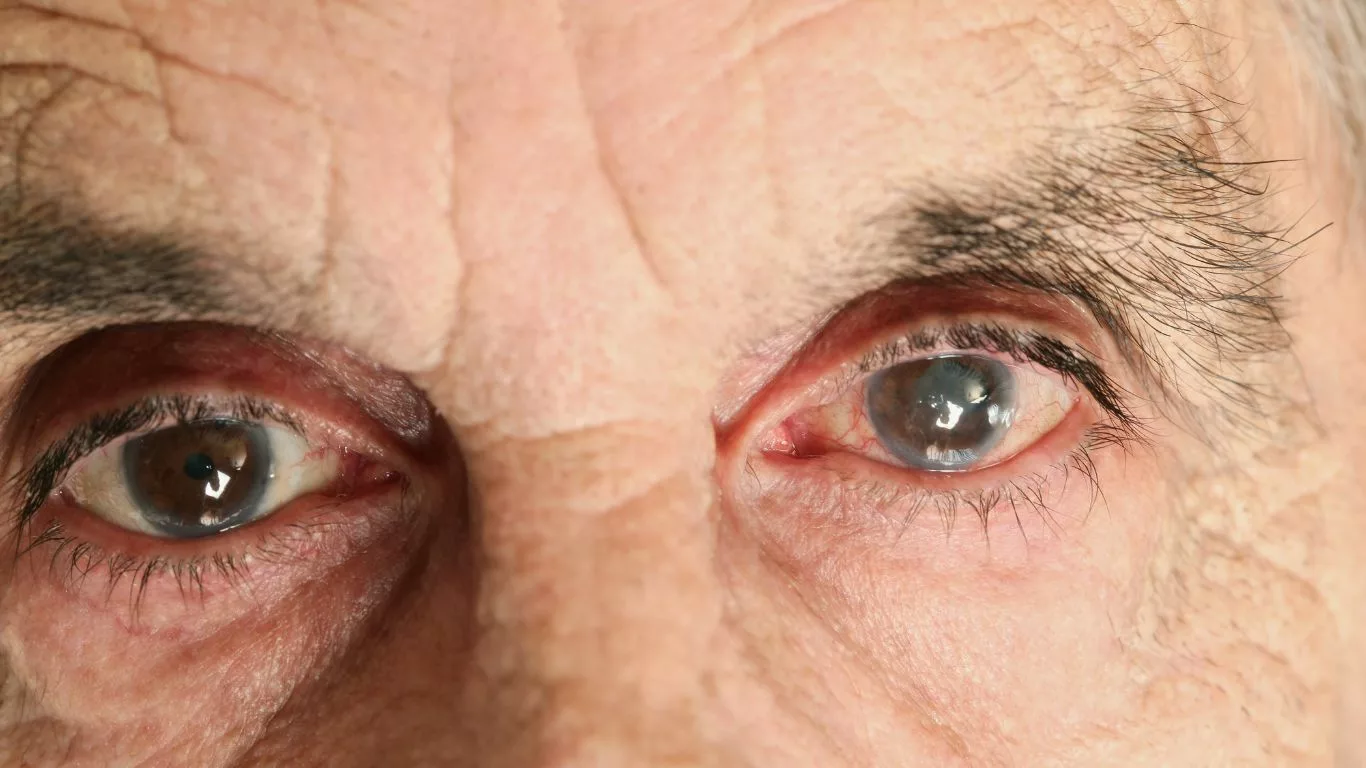Understanding Eye Floaters and Dizziness: Causes and Remedies
Learn about the connection between eye floaters and dizziness, their causes, symptoms, and potential remedies in this comprehensive guide.
Eye floaters and dizziness are common complaints that can significantly affect daily life. Understanding their causes, how they interrelate, and effective remedies can help manage these issues more effectively. This guide will delve into the potential links between eye floaters and dizziness, their underlying causes, symptoms, and possible treatments.

What Are Eye Floaters?
Eye floaters are small, shadowy shapes that drift across your field of vision, often becoming more noticeable when you look at a bright, plain background such as a clear sky or a white wall. These floaters can vary in shape and size, often appearing as spots, threads, cobweb-like structures, squiggly lines, or even small blobs. Although they seem to be in front of your eye, they are actually floating inside the vitreous, the clear gel-like substance that fills the inside of your eye and helps maintain its round shape.
The Nature of Eye Floaters
The vitreous humor is a transparent, jelly-like substance that occupies the space between the lens at the front of the eye and the retina at the back. It is composed mostly of water, with a network of collagen fibers, proteins, and hyaluronic acid, which helps maintain its gel-like consistency. Over time, changes in the vitreous humor can lead to the formation of eye floaters.
How Eye Floaters Form
As we age, the vitreous humor undergoes a process called syneresis, where it gradually liquefies and contracts. This process causes the collagen fibers within the vitreous to clump together. These clumps cast shadows on the retina, the light-sensitive tissue lining the back of the eye, which are perceived as floaters. The process of the vitreous pulling away from the retina is known as posterior vitreous detachment (PVD), which is a common cause of floaters in older adults.
Causes of Eye Floaters
While age-related changes in the vitreous are the most common cause of eye floaters, several other factors can contribute to their development:
- Eye Injuries: Trauma to the eye can damage the vitreous or retina, leading to the formation of floaters. Blunt force injuries, such as a blow to the head, can cause the vitreous to pull away from the retina more abruptly, increasing the likelihood of floaters.
- Inflammation: Inflammatory conditions of the eye, such as uveitis (inflammation of the middle layer of the eye), can cause debris to be released into the vitreous, resulting in floaters. Uveitis can be triggered by infections, autoimmune diseases, or exposure to toxins.
- Bleeding: Hemorrhage within the eye, particularly in the vitreous humor, can occur due to various reasons such as diabetic retinopathy (damage to the retinal blood vessels from diabetes), retinal vein occlusion (blockage of veins in the retina), or hypertension (high blood pressure). Blood cells entering the vitreous humor can appear as floaters.
- Retinal Tears and Detachments: A retinal tear or detachment can lead to a sudden increase in floaters and is a medical emergency. When the vitreous pulls too hard on the retina, it can cause the retina to tear. Fluid can then seep behind the retina, causing it to detach from the underlying supportive tissue. This condition requires immediate attention to prevent permanent vision loss.
Symptoms and Diagnosis
Floaters are usually more noticeable in well-lit environments or against light backgrounds. In addition to seeing floaters, individuals might also experience flashes of light, which occur when the vitreous tugs on the retina. If you notice a sudden increase in floaters, flashes, or a dark curtain-like effect over your vision, it is crucial to seek prompt medical evaluation, as these could be signs of a retinal tear or detachment.
To diagnose the cause of floaters, an eye doctor will conduct a comprehensive eye examination, which may include:
- Dilated Eye Exam: Using special drops to widen (dilate) the pupils, allowing a thorough examination of the vitreous and retina.
- Optical Coherence Tomography (OCT): A non-invasive imaging test that provides detailed images of the retina.
- Ultrasound: If the vitreous is too cloudy to see through, an ultrasound of the eye might be used to get a clearer view.

Understanding Dizziness
Dizziness describes sensations of feeling faint, woozy, weak, or unsteady. It can vary from mild disorientation to severe impairment, affecting daily life. Types of dizziness include:
- Vertigo: A spinning sensation, often linked to inner ear issues.
- Disequilibrium: A feeling of imbalance, noticeable when walking.
- Presyncope: Lightheadedness or near-fainting, often with nausea and cold sweats.
Common Causes of Dizziness
Inner Ear Problems
Issues in the inner ear, crucial for balance, often cause dizziness:
- BPPV: Brief, intense dizziness from head position changes.
- Meniere’s Disease: Fluid buildup causing vertigo, hearing loss, and tinnitus.
- Vestibular Neuritis: Viral inflammation of the vestibular nerve causing severe, continuous vertigo.
Low Blood Pressure
Sudden blood pressure drops reduce brain blood flow, causing dizziness. Common triggers include:
- Postural Changes: Standing up quickly.
- Dehydration: Reduced fluid intake or excessive loss.
- Medications: Some high blood pressure medications.
Dehydration
Fluid loss reduces blood volume, leading to dizziness:
- Insufficient Fluid Intake: Not drinking enough water.
- Excessive Sweating: High-intensity exercise or hot weather.
- Illness: Diarrhea, vomiting, or fever causing fluid loss.
Medications
Some medications cause dizziness, including:
- Antihypertensives: Lower blood pressure.
- Antidepressants: Particularly SSRIs and tricyclics.
- Sedatives and Tranquilizers: Affect the central nervous system.
Anxiety Disorders
Stress and anxiety can lead to dizziness through hyperventilation or panic attacks:
- Panic Attacks: Sudden fear episodes causing dizziness and palpitations.
- Generalized Anxiety Disorder (GAD): Chronic anxiety leading to dizziness and fatigue.

The Connection Between Eye Floaters and Dizziness
While eye floaters and dizziness can occur independently, there are scenarios where they might be interconnected:
Visual and Vestibular Systems
The visual and vestibular systems are intricately linked in maintaining balance and spatial orientation. The vestibular system, located in the inner ear, is responsible for detecting motion and changes in head position, helping us maintain equilibrium. The visual system provides continuous feedback about our surroundings and motion, contributing to our sense of balance.
Disruptions in either system can lead to balance issues and dizziness. Eye floaters, which create shadows on the retina and can disrupt clear vision, may cause the brain to receive conflicting information from the eyes and vestibular system. This mismatch can lead to sensations of dizziness or vertigo. For instance, if floaters are particularly distracting or numerous, they can cause difficulties in focusing and maintaining a stable visual field, exacerbating balance problems and leading to dizziness.
Additionally, visual disturbances such as floaters can cause a person to overcompensate by altering their posture or head movements, further straining the vestibular system and potentially leading to dizziness. This is especially true in environments where visual cues are crucial, such as while reading, using a computer, or navigating uneven terrain.
Neurological Causes
Various neurological conditions can result in both eye floaters and dizziness, often due to shared underlying mechanisms affecting the brain and nervous system. Migraines, for example, are a common neurological disorder that can cause visual disturbances, including floaters or auras, and dizziness. Migraines can disrupt normal brain function and affect both the visual and vestibular pathways, leading to simultaneous occurrences of these symptoms.
Other neurological disorders such as multiple sclerosis (MS), which affects the central nervous system, can also present with both eye floaters and dizziness. MS can cause inflammation and damage to the optic nerve, leading to visual disturbances, while also impacting the brain areas responsible for balance, resulting in dizziness.
In addition, conditions like transient ischemic attacks (TIAs) or strokes, which temporarily or permanently impair blood flow to the brain, can cause sudden onset of both floaters and dizziness. These events can damage areas of the brain that process visual information and balance, highlighting the interconnected nature of these symptoms.

Managing Eye Floaters and Dizziness
Natural Remedies for Eye Floaters
While floaters often do not require treatment, certain practices can help manage them:
- Hydration: Adequate hydration is crucial for maintaining eye health. It helps keep the vitreous humor, the gel-like substance in the eye, appropriately viscous, reducing the likelihood of clumps that cause floaters.
- Nutrient-Rich Diet: Consuming a diet rich in vitamins A, C, and E, along with omega-3 fatty acids, supports overall eye health by protecting against oxidative damage and inflammation, which can contribute to eye health issues like floaters. Foods such as leafy greens, carrots, fish, and nuts are excellent sources of these nutrients.
- Eye Exercises: Regular eye exercises can enhance eye health and potentially reduce the impact of floaters. Activities such as moving the eyes in various directions or focusing on near and distant objects can improve eye muscle flexibility and strength.
Treating Dizziness
- Hydration and Nutrition: Ensuring adequate fluid intake and a balanced diet are crucial for managing dizziness. Dehydration can lead to low blood pressure and exacerbate dizziness, while a nutrient-rich diet supports overall health, including the proper functioning of the vestibular system.
- Vestibular Rehabilitation: Physical therapy focused on the vestibular system can significantly improve balance and reduce dizziness. Vestibular rehabilitation exercises help the brain adapt to balance issues, enhance coordination, and promote stability. These exercises typically include head movements, gaze stabilization techniques, and balance training tailored to individual needs.
- Medications: Prescription medications targeting underlying conditions that cause dizziness can be highly effective. For instance, medications for managing migraines, controlling blood pressure, or treating inner ear disorders can alleviate dizziness. In certain cases, healthcare providers may prescribe vestibular suppressants to mitigate symptoms of vertigo and imbalance.

Considerations and Precautions
Monitor Symptoms
If you experience a sudden increase in floaters, flashes of light, or significant vision changes, seek medical attention immediately as these could indicate retinal detachment.
Consult Healthcare Professionals
Persistent or severe dizziness and floaters should be evaluated by a healthcare provider to rule out serious conditions and develop an appropriate treatment plan.
Conclusion
Understanding the connection between eye floaters and dizziness can help in managing these symptoms effectively. By maintaining a healthy lifestyle, staying hydrated, and seeking medical advice when necessary, individuals can mitigate the impact of these conditions on their daily lives.

Appendices
References
For further exploration of the topic of eye floaters and dizziness, consider reviewing the following references:
- National Eye Institute. (2023). Facts About Floaters. Retrieved from [National Eye Institute](https://www.nei.nih.gov/health/floaters/floaters)
- American Academy of Ophthalmology. (2022). What Are Eye Floaters? Retrieved from [AAO](https://www.aao.org/eye-health/diseases/what-are-floaters-flashes)
- National Institutes of Health (NIH). (2023). Dizziness: Approach to Evaluation and Management. Retrieved from [NIH](https://pubmed.ncbi.nlm.nih.gov/28145669/)
FAQs
Here are some frequently asked questions about eye floaters and dizziness:
- Can eye floaters cause dizziness? While floaters do not directly cause dizziness, disruptions in vision can affect balance, potentially leading to dizziness.
- When should I seek medical attention for eye floaters? Seek immediate medical attention if you experience a sudden increase in floaters, flashes of light, or significant vision changes, as these could indicate retinal detachment.
- How can I reduce the occurrence of dizziness? Ensuring proper hydration, a balanced diet, and engaging in vestibular rehabilitation can help reduce dizziness. Consulting a healthcare professional for persistent symptoms is also advisable.
Related Table
Here’s a summary table of key information regarding eye floaters and dizziness:
| Aspect | Information |
|---|---|
| Causes of Floaters | Age-related changes, eye injuries, inflammation, bleeding, retinal tears |
| Causes of Dizziness | Inner ear problems, low blood pressure, dehydration, medications, anxiety disorders |
| Natural Remedies for Floaters | Hydration, nutrient-rich diet, eye exercises |
| Treating Dizziness | Hydration, nutrition, vestibular rehabilitation, medications |
| When to Seek Medical Attention | Sudden increase in floaters, flashes of light, significant vision changes |
Disclaimer: The information provided in this article is for educational and informational purposes only. It is not intended to be a substitute for professional medical advice, diagnosis, or treatment. Always seek the advice of your physician or other qualified health provider with any questions you may have regarding a medical condition. Never disregard professional medical advice or delay in seeking it because of something you have read in this article. Reliance on any information provided in this article is solely at your own risk.

Camellia Wulansari is a dedicated Medical Assistant at a local clinic and a passionate health writer at Healthusias.com. With years of hands-on experience in patient care and a deep interest in preventive medicine, she bridges the gap between clinical knowledge and accessible health information. Camellia specializes in writing about digestive health, chronic conditions like GERD and hypertension, respiratory issues, and autoimmune diseases, aiming to empower readers with practical, easy-to-understand insights. When she’s not assisting patients or writing, you’ll find her enjoying quiet mornings with coffee and a medical journal in hand—or jamming to her favorite metal band, Lamb of God.







